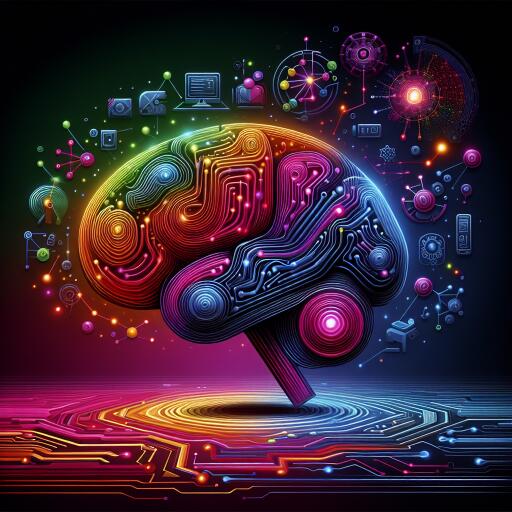The Transformative Impact of AI on Product Development
In an era where innovation is king, Artificial Intelligence (AI) is transforming the landscape of product development. By streamlining development cycles, enhancing design optimization, and precisely predicting consumer behavior, AI is not just a tool but a pivotal enabler of innovation across various industries. This article dives into how machine learning is unlocking new realms of efficiency and creativity in product development, setting a new benchmark for success.
Revolutionizing Development Cycles with AI
One significant advantage AI brings to product development is the substantial acceleration of development cycles. In traditional processes, which can be both time-consuming and labor-intensive, AI emerges as a game-changer. Utilizing machine learning algorithms, companies can now navigate through design, prototyping, testing, and iteration stages with unprecedented speed and precision.
AI algorithms excel in identifying patterns and executing optimization tasks, thus allowing for rapid generation and evaluation of design options. These capabilities are especially beneficial in industries like automotive, where AI-driven simulations for crash tests or aerodynamics can save precious time and resources compared to physical testing. Additionally, AI can leverage historical performance data to suggest optimal designs, significantly enhancing the development process’s efficiency.
Unlocking Creative Potentials in Design Optimization
Design optimization stands as a cornerstone of product innovation. Here, AI tools empower engineers and designers to transcend traditional limitations, propelling them into a realm of enhanced creativity and performance. Techniques such as generative design and evolutionary algorithms enable the exploration of wide-ranging design possibilities, pushing the boundaries of what can be achieved.
Generative design, for instance, can autonomously generate optimal designs based on set parameters like material constraints and performance goals. These AI-driven systems not only facilitate the discovery of innovative solutions but also evolve over time, learning from each design iteration to continuously offer improved recommendations. This adaptability ensures that companies can remain agile, catering to market demands with precision.
Mastering Consumer Insights with AI
AI’s capability to predict consumer preferences and market trends is invaluable for companies aiming to align their products with customer expectations. By analyzing extensive consumer data, AI tools can unveil insights into behavioral patterns, aiding businesses in crafting products that truly resonate with their target audience.
For example, sentiment analysis can dissect social media conversations and online reviews to capture the general sentiment towards certain products or features. Similarly, AI-powered forecasting models can predict product demand by analyzing market trends, helping companies optimize their strategies in real time. These insights not only enable tailored product development but also sharpen marketing strategies, ensuring a higher success rate in the competitive marketplace.
Case Studies: Witnessing AI’s Impact Across Industries
Exploring case studies from various sectors illustrates AI’s versatile role in revolutionizing product development.
The Road Ahead: Future Trends and Challenges
As we look to the future, the role of AI in product development only promises to grow. However, this evolution comes with its set of challenges, including ethical dilemmas, privacy issues, and the need for robust cybersecurity measures. Furthermore, leveraging AI to its fullest potential requires a skilled workforce capable of navigating the nuances of these advanced technologies.
Investing in cross-functional teams that blend the expertise of data scientists, engineers, and domain specialists will be critical for fostering an environment where creativity and innovation can flourish. This collaborative approach will ensure that AI can continue to drive product development forward, marking a new era of efficiency and ingenuity.
Conclusion
AI is more than just a technological advancement; it’s a catalyst for innovation in product development. By offering tools to expedite development cycles, enhance design optimization, and deliver precise consumer insights, AI is setting new standards for what can be achieved. As companies continue to embrace the possibilities that AI presents, the future of product development looks not only brighter but boundless, promising a landscape teeming with opportunities for growth, competitive advantage, and customer satisfaction.










